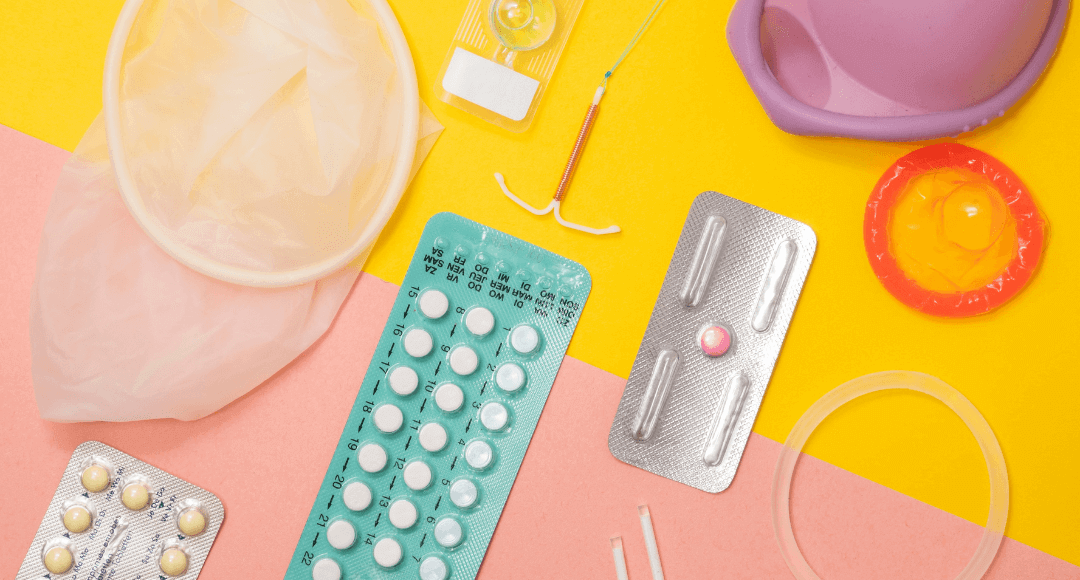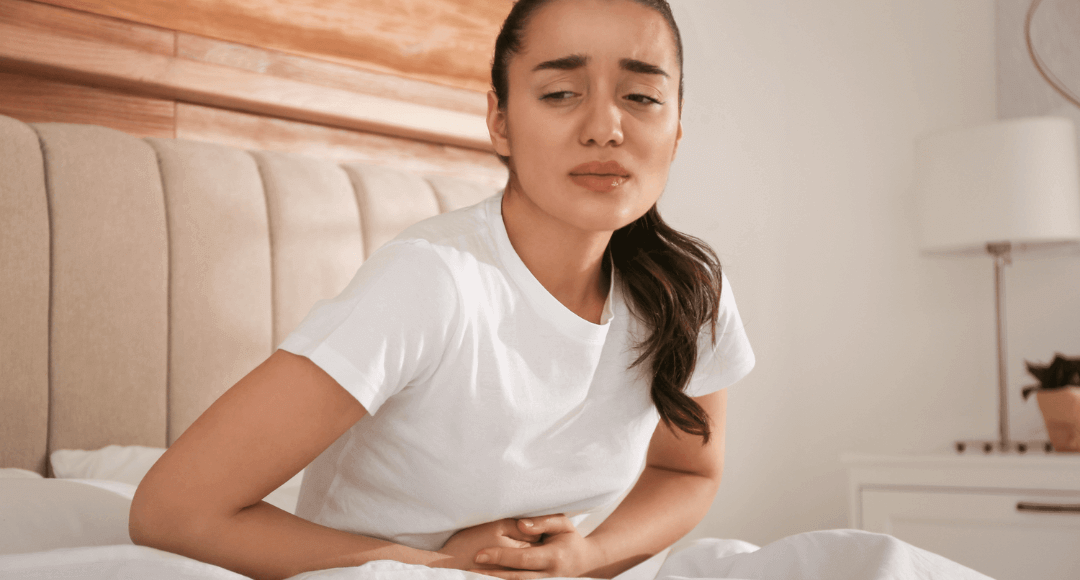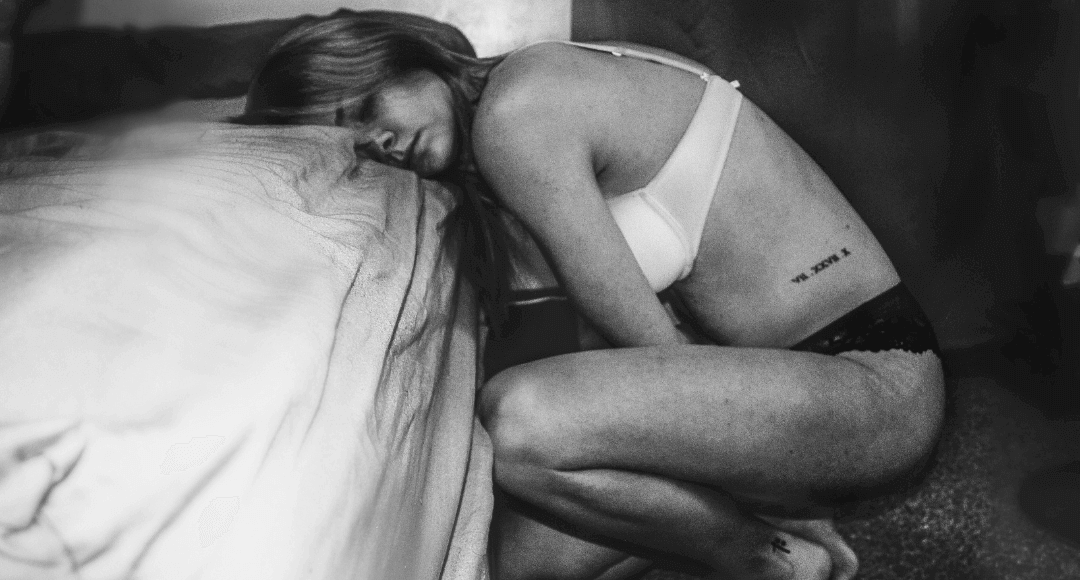Sleep is essential for your health and well-being. But did you know that your sleep is also influenced by your menstrual cycle? And that your period, in turn, affects your sleep? In this blog post, I explain how this works and what you can do to sleep better during your period.
How Hormones Disrupt Your Sleep
Your menstrual cycle is regulated by several hormones, such as estrogen, progesterone, and melatonin. These hormones fluctuate throughout the month and affect your body temperature, mood, appetite, and sleep.
Especially in the second half of your cycle, after ovulation, your sleep can be disturbed by the drop in estrogen and the rise in progesterone.
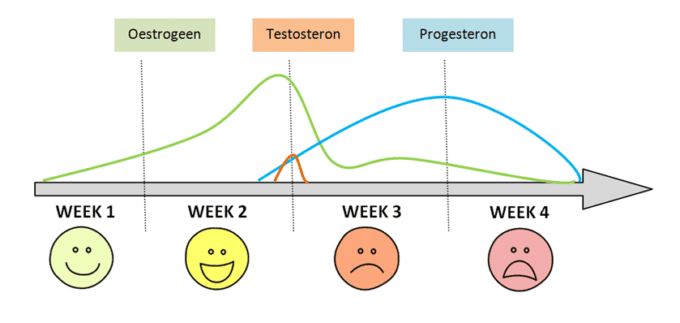
Progesterone makes you sleepy, but it can also cause increased night sweats, dreaming, and waking. Furthermore, progesterone can affect your breathing and increase the risk of snoring or sleep apnea.
Melatonin, the hormone that regulates your sleep-wake cycle, is also affected by your cycle. Melatonin is produced when it gets dark and makes you sleepy. But when your estrogen levels drop, your melatonin production also decreases. This means you fall asleep more slowly and sleep less deeply.
How Sleep Deprivation Makes Your Period Worse
If you're having trouble sleeping due to your hormones, this can also affect your period. Lack of sleep can lead to increased stress, inflammation, pain, and mood swings. This can worsen your menstrual symptoms , such as cramps, headaches, backache, irritability, and depression.
 Moreover, sleep deprivation can also affect your ovulation and fertility. If you sleep too little or too irregularly, it can cause your ovulation to be delayed or absent. This can lead to irregular or absent periods, or to difficulty conceiving.
Moreover, sleep deprivation can also affect your ovulation and fertility. If you sleep too little or too irregularly, it can cause your ovulation to be delayed or absent. This can lead to irregular or absent periods, or to difficulty conceiving.
What can you do to sleep better during your period?
Fortunately, there are several things you can do to sleep better during your period. Here are a few tips:
- Maintain a regular sleep schedule. Go to bed and wake up around the same time every day. This helps your body maintain a natural sleep-wake rhythm.
- Avoid caffeine, alcohol, and nicotine in the evening. These substances can disrupt your sleep by keeping you awake or reducing the quality of your sleep.
- Ensure a comfortable bedroom. Keep the temperature cool, the lights dim, and the noise low. Consider using a fan, a blackout curtain, or earplugs to create an optimal sleeping environment.
- Use a heating pad or hot water bottle on your stomach or back. Heat can help relax your muscles and reduce pain.
- Get some light exercise during the day. Exercise can help reduce stress, release endorphins, and improve circulation. But avoid intense exercise right before bed, as it can be stimulating.
- Try relaxation techniques before bed. Think meditation, yoga, breathing exercises, or a warm bath. These can help you relax and fall asleep.
- Talk to your doctor if your sleep problems persist or are severe. Sometimes sleep problems can be a sign of an underlying condition, such as endometriosis, PCOS , or a thyroid problem. Your doctor can then assess and treat you further.
How do menstrual cycles and hormones affect your dreams?
The menstrual cycle and hormones play an important role in regulating various aspects of health. They can even influence dream experiences . The menstrual cycle is associated with changes in women's sleep patterns. It can lead to sleep disturbances, which can result in more vivid and unusual dreams . Fluctuations in hormone levels, particularly estrogen and progesterone, are believed to be the driving forces behind these changes.
Moreover, hormones not only influence sleep quality, but can also affect the content of dreams. Hormonal fluctuations, especially around menstruation, can lead to intense dream experiences. Just before menstruation, dreams can be remarkably vivid and sometimes even wild. This is due to hormonal changes and their influence on the brain. These dreams may be caused by a combination of hormonal peaks and troughs, which in turn links the menstrual cycle to the rich world of dreams.
Menstrual underwear helps you sleep well at night
Make sure you wear period underwear at night. You can easily wear period underwear for 8-10 hours, and that means you don't have to get up in the middle of the night to change a tampon or pad.
The boyshorts with super absorption They're ideal for sleeping. It doesn't matter whether you sleep on your stomach, side, or back, because the absorbent layer in the super boyshorts extends from the back waistband to the front. In the morning, rinse the shorts in the shower and toss them in the laundry basket.
What can you do to help girls who are getting their period for the first time?
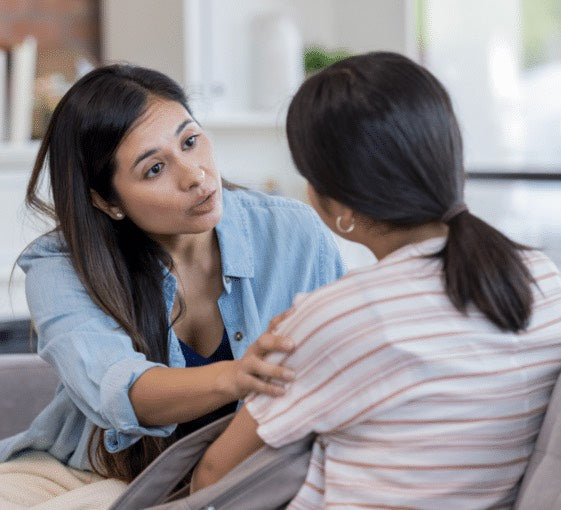 If you're a girl experiencing her first period, or if you're a parent, caregiver, or friend of one, it can be helpful to get some extra tips about sleep and menstruation. Here are a few ideas:
If you're a girl experiencing her first period, or if you're a parent, caregiver, or friend of one, it can be helpful to get some extra tips about sleep and menstruation. Here are a few ideas:
- Explain what happens to her body and hormones during the menstrual cycle. This way, you can prepare your daughter for the changes she can expect and reassure her that they are normal.
- Give her a menstrual calendar or an app to track her cycle. This way, she can learn to recognize her own rhythm and predict when her period will start.
- Provide enough sanitary pads or period underwear for teenagers and explain how to use them. Also, provide an extra set of clothes, underwear, and bedding in case of any leakage.
- Encourage her to take good care of herself during her period. This means eating healthily, drinking enough, getting enough rest, and doing enjoyable activities. This will help her maintain her energy and mood.
- Be understanding and supportive when she's struggling with symptoms or emotions. Listen to her, give her a hug, a compliment, or advice if she needs it.
- Consult a doctor if the girl experiences heavy or prolonged bleeding, significant pain, or other symptoms that interfere with her daily life. Sometimes there may be a medical cause that requires treatment.
Conclusion
 Sleep and menstruation are two natural processes that influence each other. Your hormones can disrupt your sleep during your period, and lack of sleep can worsen your menstrual symptoms. Fortunately, with a few simple tips, you can improve your sleep and make your period easier.
Sleep and menstruation are two natural processes that influence each other. Your hormones can disrupt your sleep during your period, and lack of sleep can worsen your menstrual symptoms. Fortunately, with a few simple tips, you can improve your sleep and make your period easier.
And if you are a girl experiencing her first period, or if you know a girl like that, you can also get extra help and support to get through this new phase in your life.
I hope you found this blog interesting and helpful. Any questions or comments? Let me know via email or WhatsApp!























